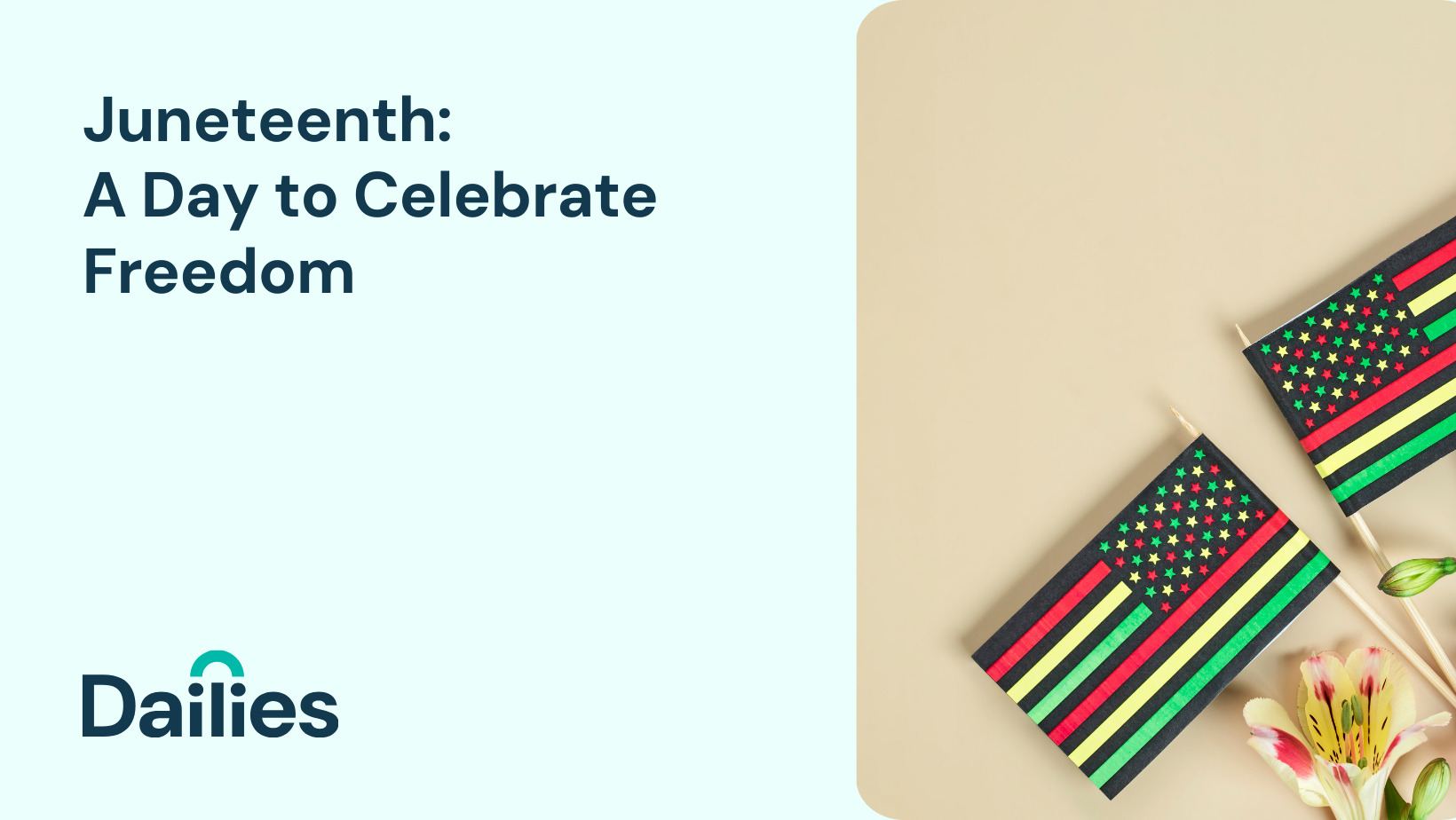Written by
Meghan Bouboulinis Read all posts by this author
Kids Learning about Juneteenth
Even though Juneteenth was only officially declared a federal holiday in 2021, it’s actually the oldest national celebration of the ending of slavery in the United States. Juneteenth has been celebrated since 1865, which is almost 160 years ago!
What Is Juneteenth?
Juneteenth, also known as Emancipation Day and Juneteenth Independence Day, is a holiday celebrating the end of slavery in the United States. The name Juneteenth comes from the day we celebrate, June 19th.
The First Celebration
Although President Lincoln signed the Emancipation Proclamation and declared freedom for all slaves in January 1963, many states did not follow this and continued to keep slaves for the next two years. In April 1865, the Confederacy finally surrendered and brought an end to The Civil War. On June 19, 1865, Union soldiers arrived in Galveston, Texas and enforced the Emancipation Proclamation, sharing the news of freedom to the state’s 250,000 enslaved people. When this joyous news was announced, celebrations erupted with prayers, songs, and dance. The following year, on June 19, 1866, the first official Juneteenth celebration took place in Texas, and as people began to move away from Galveston over the next few years, the celebrations began to spread to other states, as well.
Celebrating Over The Years
As these celebrations continued to spread throughout the country, so did further calls to action. Although Juneteenth is often considered a southern-state holiday and may not hold a significance to all Black people, the holiday is still a strong foundation for civil rights, equal rights, and freedom for all. It is a day to celebrate the end of slavery, honor Black American contributions and achievements, and share in family festivities of prayers, picnics, song, and dance. Juneteenth is a day of joy, liberation, and resilience.
Introducing Juneteenth To Young Children
No matter the age, the introduction of race and slavery should never be centered on trauma. While this time in our history is indeed a traumatic one, African American history does not begin with slavery and it certainly does not end there. Shying away from history communicates that it should be avoided when it is really the opposite. Introducing history better equips children to hear about it later and emotionally process the truths of slavery. A child’s introduction to race and history should be filled with pride and empowerment; it should be a celebration of Black culture. A celebration of resilience, of leadership, of inventions and accomplishments that demonstrates overcoming adversity and equips children to be proud of themselves and their ancestors.
Celebrating Juneteenth
Juneteenth events can be wonderful opportunities to introduce the concepts of slavery with a focus on resilience and within an environment of love, trust, and joy. There are many simple, yet impactful ways to commemorate today that are similar to the earliest Juneteenth celebrations. Coming together with family and friends to share food, to dance and sing, and lift up prayers. Some examples of family celebrations can include:
- Listening to African American folk tales and songs
- Create a Juneteenth flag
- Sharing a meal together
- Drawing a picture or writing in a journal
- Discussing positive changes you would like to see (and make!) in the world
Additionally, Sesame Street and Gracie’s Corner have catchy, child-friendly songs about Juneteenth and there are many kid books about the holiday and Black history in general:
- “Let’s Celebrate Juneteenth” board book by Tonya Abari.
- “Juneteenth for Mazie” by Floyd Cooper.
- “Juneteenth Jamboree” by Carole Boston Weatherford.
- “All Different Now: Juneteenth, the First Day of Freedom” by Angela Johnson.
- “Little Leaders: Bold Women in Black History” or “Little Leaders: Exceptional Men in Black History” from the Little Leaders series by Vashti
Today is a day to celebrate, but it is also a day to call attention to the importance of working together to make a difference in the world and ensure that all people have the freedom they deserve.

